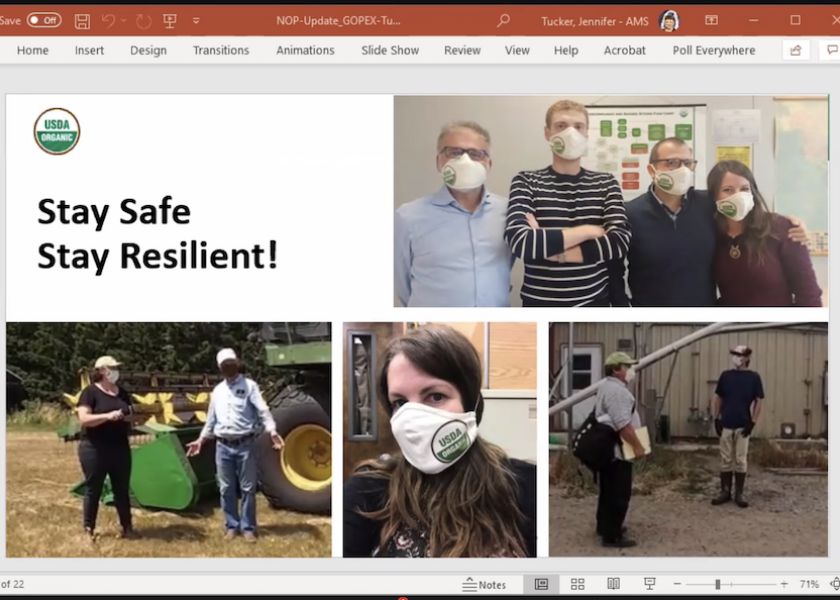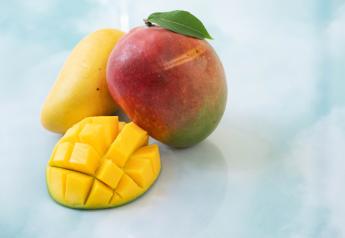Keeping organic integrity throughout supply chain in U.S. and abroad

Non-farm businesses may be required to get organic certification in the near future — especially operations that import or export organic produce.
This coming requirement is part of the Strengthening Organic Enforcement Rule, said Jennifer Tucker, deputy administrator of the National Organic Program, part of the Agricultural Marketing Service in the U.S. Department of Agriculture.
Tucker was the keynote speaker at the virtual Global Organic Produce Expo on Jan. 28.
A key part of this proposed rule is an electronic organic import certificate for all shipments entering the U.S. The new tool will provide critical import data to improve global oversight of organic supply chains.
“We want to catch the bad guy while not slowing legitimate trade, and that’s a tough needle to thread,” Tucker said. “That’s why we need to start with data. ‘Many hands’ is a key component of our work.”
Required by the 2018 Farm Bill, this project involves close collaboration with U.S. Customs and Border Protection, organic certifiers, importers and exporters, and organic programs in other countries.
This electronic certificate should support organic integrity by combatting fraud and increasing traceability of products, as well as support enforcement to protect the USDA organic seal.
The National Organic Program is working on strengthening the integrity of the organic seal in other ways as well.
The program launched a modernized customer complaint portal, and “that’s saved a bunch of time,” Tucker said.
The Organic Integrity Learning Center, an initiative of the program, has created 73 lessons across 20 courses, all free and open to the public, such as “Organic Fraud and the Criminal Mind.”
Partnering with Customs and Border Protection has taught the program staff that a business or person who commits organic fraud often commits other violations or crimes.
The COVID-19 pandemic has changed the way inspectors work, Tucker said, with a risk-based approach to surveillance of operations that already have organic certification.
“That organic certification continues until it’s surrendered, suspended or revoked,” Tucker said. “For new applicants, on-site inspection is still required. We have not waived that.”
For annual reviews, some inspectors are conducting virtual inspections, reviewing records, doing more traceability analysis, looking at supplier relationships and conducting mass balance analysis.
The National Organic Standards Board will have another virtual spring meeting, with public comment webinars April 20-22 and the virtual meeting from noon-5 p.m. ET, April 28-30.







